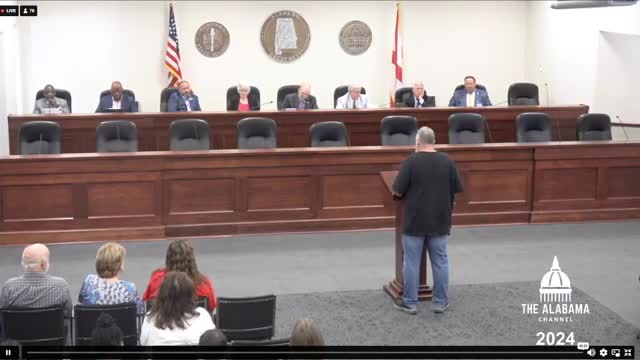Alabama prison system faces urgent calls for reform
July 25, 2024 | Joint Interim Committees, Alabama Legislative Sessions, Alabama

This article was created by AI summarizing key points discussed. AI makes mistakes, so for full details and context, please refer to the video of the full meeting. Please report any errors so we can fix them. Report an error »

In a recent government meeting, advocates and community leaders voiced urgent concerns regarding the Alabama prison system, highlighting systemic failures and the need for immediate reforms. The discussions revealed deep frustrations over the lack of effective communication and timely notifications for families of incarcerated individuals, with one speaker citing a five-day delay in contacting a family after an incident.
Pastor Robert White, representing a coalition of pastors, proposed several solutions aimed at improving conditions within the prisons. He emphasized the necessity of structured dormitories to provide inmates with meaningful activities, which could reduce recidivism rates. White also called for increased access for religious leaders to implement educational and spiritual programs, asserting that such initiatives are crucial for the well-being of both inmates and staff.
Dr. Elizabeth Hancock criticized the current state of the prison system, labeling it one of the worst in the world. She pointed out alarming statistics, including over 169 deaths in custody within the year, and questioned the effectiveness of rehabilitation programs. Hancock urged for the implementation of evidence-based rehabilitation practices and better visitation policies, arguing that improved family connections could serve as a significant behavioral incentive for inmates.
Shanta Roney shared a personal account of her brother's mistreatment while incarcerated, underscoring the emotional toll on families and the urgent need for accountability within the Alabama Department of Corrections (ADOC). The meeting underscored a collective call for reform, with advocates demanding that the state prioritize humane treatment and rehabilitation for those in its care.
Pastor Robert White, representing a coalition of pastors, proposed several solutions aimed at improving conditions within the prisons. He emphasized the necessity of structured dormitories to provide inmates with meaningful activities, which could reduce recidivism rates. White also called for increased access for religious leaders to implement educational and spiritual programs, asserting that such initiatives are crucial for the well-being of both inmates and staff.
Dr. Elizabeth Hancock criticized the current state of the prison system, labeling it one of the worst in the world. She pointed out alarming statistics, including over 169 deaths in custody within the year, and questioned the effectiveness of rehabilitation programs. Hancock urged for the implementation of evidence-based rehabilitation practices and better visitation policies, arguing that improved family connections could serve as a significant behavioral incentive for inmates.
Shanta Roney shared a personal account of her brother's mistreatment while incarcerated, underscoring the emotional toll on families and the urgent need for accountability within the Alabama Department of Corrections (ADOC). The meeting underscored a collective call for reform, with advocates demanding that the state prioritize humane treatment and rehabilitation for those in its care.
View full meeting
This article is based on a recent meeting—watch the full video and explore the complete transcript for deeper insights into the discussion.
View full meeting
